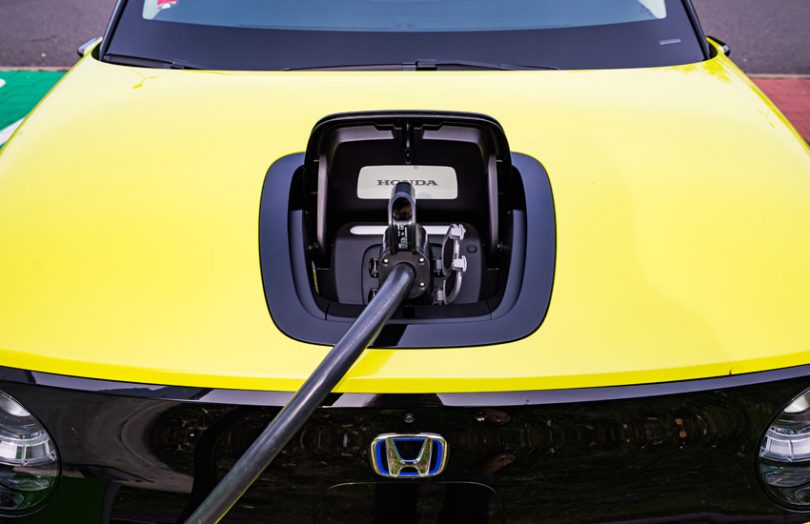Yesterday the Mobility Open Blockchain Initiative (MOBI) unveiled its first electric vehicle grid integration (EVGI) standard. The EVGI working group is led by Honda and General Motors (GM).
When one thinks of electric vehicles and the grid, recharging the car is the primary purpose that springs to mind. However, in the renewable energy sector, batteries are an expensive component to enable solar, wind or other energy to be stored when excess energy is generated. And electric vehicles provide a ready source of large batteries. Hence there’s been significant activity around using cars to store renewable energy in decentralized energy grids.
To that end, last year MOBI set up a working group to explore the topic. Yesterday’s announcement signals the release a design specification. The areas covered are Vehicle to Grid Integration (V2G), Tokenized Carbon Credits (TCC), and Peer to Peer (P2P) applications. The standards are agnostic to the blockchain or distributed ledger technology (DLT) to be used. It’s more about specifying data and functions.
“Electric vehicles, chargers, and electricity producers can have a secure identity, communicate with a standard messaging format, and automatically record transactions such as charging, generation, and exchange on a distributed ledger,” said Tram Vo, MOBI’s COO and Founder.
Leaders Honda and GM were supported by Accenture, CPChain, IBM, the IOTA Foundation, Pacific Gas & Electric Company (PG&E), Politecnico di Torino, and R3.
“Decentralization and the concept of direct P2P interaction is set to become a key factor in leveraging this new market and building meaningful tools for energy-conscious end customers,” said Christian Köbel, Senior Project Engineer at Honda R&D Europe. “The goal is to enable scalable, user-centric energy communities.”
There have already been numerous projects exploring using electric vehicles connected to grids. Toyota started a project last year in Japan. In California, Omega Grid is working with EDF. And in Europe, three major electricity utilities launched Equigy to crowd balance the grid. One of the utilities TenneT has worked with both BMW and Nissan on bidirectional charging. And Terna has an alliance with Fiat Chrysler for a virtual power plant (VPP) for a fleet of cars.






